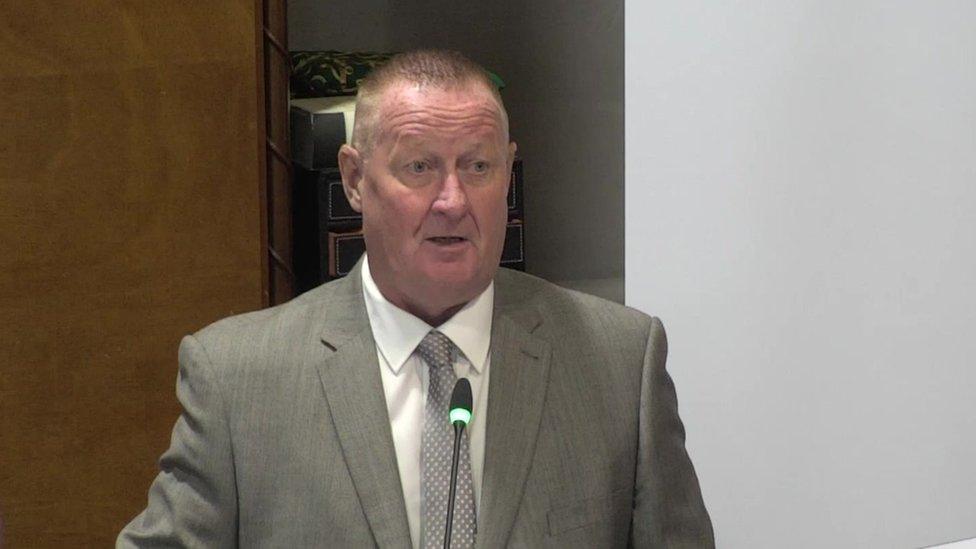Grenfell inquiry: Stay-put advice 'good' says firefighter
- Published

Alan Moore told the inquiry: "We did more than our best."
Advice given to residents to stay-put during the Grenfell Tower fire was "good" and "should have worked", a firefighter has told an inquiry.
Alan Moore said there would have been more casualties had people on higher floors been told to evacuate.
The stay-put policy is based on the theory buildings can be designed to prevent fire spreading between flats.
But reports submitted to the inquiry have suggested that major changes to the tower destroyed that protection.
The advice was in place until 02:47 BST - nearly two hours after the fire started at the west London tower block on 14 June last year.
Mr Moore, who recently retired after 30 years in the fire service, was watch manager on the night of the fire, guiding crews and residents out of the tower.
He said the stay-put policy should have worked at Grenfell Tower, "should the building have done what it was supposed to have done".
"I don't think any training could have prepared us to deal with what happened at Grenfell Tower that night," he said.
"It was a situation that developed and went way beyond the process we were trained to."
"We did more than our best," he added.
Asked about the advantages and disadvantages of advising those on higher floors to evacuate, he said: "In hindsight I think there would have been a lot more casualties.
"People would have been overcome with smoke much more quickly. It would have blocked the stairwell and it would have made rescues more difficult."
In his written statement, Mr Moore also criticised a police helicopter near the tower for giving people "false hope" they would be rescued from the building's roof.
"You could hear people and see people shouting and pointing at the helicopter behind me and to my right," he said.
'Not enough oxygen'
The inquiry also heard that firefighters were not given enough oxygen to reach the higher floors of the tower.
Another retired firefighter, Gary Moore, told the inquiry crews "desperately needed" more oxygen.
"The [breathing] sets were running out too early. As soon as the FF (firefighters) were getting up the floors they were having to come straight back down, unable to carry out any rescues or fire-fighting," Mr Moore said in his statement.
On the night of the fire, Mr Moore was responsible for deploying breathing apparatus.
Mr Moore said there should have been more extended breathing apparatus available.
"We had a vast amount of standard BA (breathing apparatus) units.
"However, we stopped using them after about an hour of me being there as they didn't provide an adequate amount of breathing time."
The public inquiry continues.
- Published4 June 2018
- Published4 June 2018